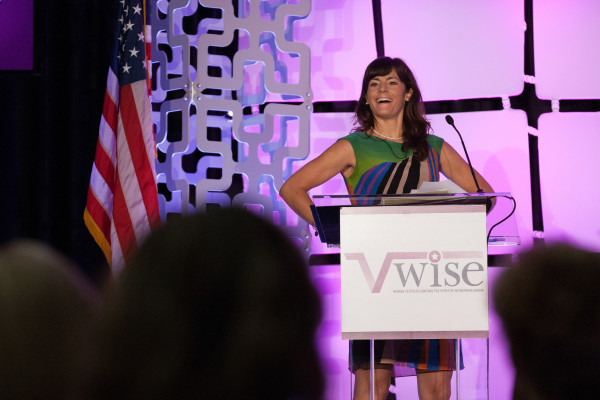

Bobbie Guinn is well acquainted with operating in a male-dominated environment.
Guinn, an Army spouse married to a wounded warrior, is a partner in Arpco Valves & Controls, an oilfield services company based in Overton, Texas.
“I don’t have to wait in line for the ladies’ room,” Guinn told Task & Purpose from the road in Midland, Texas, as she and her colleague scouted potential locations for a satellite office.
Another woman venturing into the field of entrepreneurship, Jennifer Kready, is currently in the first stages of starting a co-work space in Williamson County, Texas, and has also experienced the solitariness that comes with the life of the female startup entrepreneur. During a recent meet up, Kready, an Air Force veteran, was one of only two participants who attended.
Helping women in the military community come together in the spirit of business is the Veteran Women Igniting the Spirit of Entrepreneurship, or V-WISE, a conference program that provides mentorship, connections, coaching, and slightly longer lines for the women’s facilities.
“It was a priceless experience,” said Leah Olszewski, president and CEO of Adaptiv, who attended the 2013 workshop in Seattle. A captain and a reservist Army military intelligence officer, Olszewski is the sole female partner at her consulting firm.
Guinn attended the first V-WISE program four years ago in San Antonio. She noted that just being around other women who are business minded was empowering, adding: “It helps having that network.”
“One of the challenges as women veterans — we’re not easily identifiable,” said Kready, who learned of the program via Twitter. At the conference, she linked up with a peer group of businesswomen who still keep in touch via a Facebook group. “We’ve taken it to the next level of support.”
While Kready is still in the “pre-revenue” stages of start-up, or as she prefers to call it, “market research,” she has already begun implementing many of the lessons she learned from the conference, as well as using her experiences gained during her time as an Air Force officer.
“It’s always been about service. It’s about quality of life,” said Kready, who worked at a nonprofit after transitioning from the service. Like many veterans, she faced some challenges with the transition, noting that one of her first civilian supervisors threatened to fire her for standing every time the supervisor walked in the room.
When Olszewski decided to transition from active duty, making the decision to become an entrepreneur was driven primarily by the desire to continue serving.
“I think that’s what entrepreneurship is really about,” said Olszewski. “I like to see that I made a change and helped someone else.”
Olszewski and her partners bring their tactical and technical expertise to improve access to information for military units. She said: “We identified this gap and we are filling it.”
The challenge Olszewski and her partners currently face is expanding their clientele base beyond the Department of Defense, while continuing to finance their own business. According to Olszewski, the firm prefers to retain control and ensure they offer quality services.
One of the challenges upon transitioning from the military was learning to speak up, said Olszewski. While the military often encourages service members to fit in, an entrepreneur needs to learn to stand out.
For her part, Guinn has faced the challenge of owning a business while caring for her spouse, who retired from the Army due to injury in 2006. Although her background was in nursing, with some experience in accounting and secretarial classes, her experience as a military spouse helped prepare her to take advantage of the opportunity to purchase Arpco with a partner in 2010. Since that time, they have doubled sales and currently employ 13 people.
“You see an opportunity and you take it,” said Guinn.
In addition to the regular challenges of starting a business, military wives often find themselves starting over in new locations, or working in areas outside of their expertise.
One piece of advice Guinn offers to potential business owners is to expand one’s definition of entrepreneur. She explained that there are many businesses that provide an opportunity for a motivated individual to purchase, or to step in to solve a problem for a struggling firm.
Above all, it is important to do research and have a good plan — and to not be afraid to be the only woman in the room.
Don’t be afraid to ask for help, either. As Kready, who also runs the social networking project Camo2Khaki , said: “We’re stronger together than we are apart.”
Sometimes people may be reluctant to ask for help, especially if they can’t immediately reciprocate.
“The answer is always going to be ‘No’ unless you ask,” said Kready, who encourages women veterans to be present and active in the business community. “We need to let people know we’re out there.”
“I would say, don’t wait another day,” said Olszewski. If one identifies a services gap, or a something with a market, they should begin developing a plan and go for it. “You need to start now. Life’s too short.”
Rachel A. Brune is a former Army journalist and a current news junkie. She resides in North Carolina with her husband, two dogs, and a reliable Internet connection. The views expressed in this article are those of the author and do not reflect the official policy or position of the Department of the Army, DOD, or the U.S. government.
